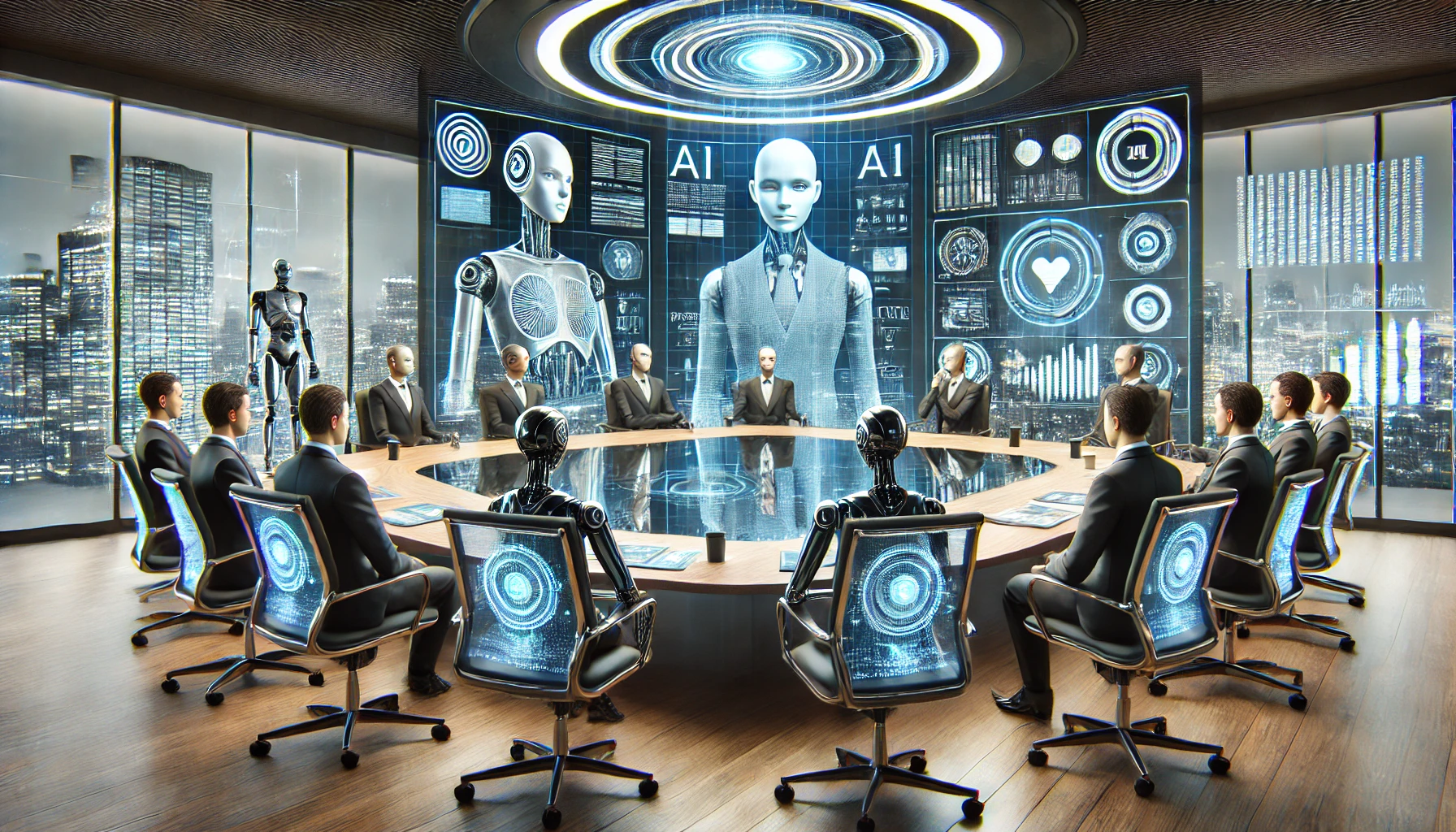Autonomous AI Directors: Shaping the Future of Corporate Management and Global Competitiveness
The development of autonomous AI systems for corporate management, spearheaded by innovations in corporate law and machine learning, is poised to revolutionize decision-making processes by enhancing transparency, efficiency, and competitiveness. Despite challenges, these systems promise significant benefits, especially for regions with limited human capital.

The development of autonomous artificial intelligence (AI) systems for corporate management is advancing rapidly, as highlighted in a recent study by Anna Romanova from MIPT and the University of Southern California. Traditionally, the role of a corporate director has been reserved for humans by law, but recent innovations in corporate law, machine learning, and the principles of non-discrimination, transparency, and accountability are paving the way for the full automation of board-level management decisions. The concept of an "autonomous director" is gaining acceptance among legal scholars, although extensive research and amendments to corporate law are necessary to facilitate their effective integration.
Digital Command Centers: The Future of Corporate Decision-Making
In practice, there are two primary approaches to automating management decisions at the top management level: digital command centers and the automation of specific functions. These AI systems will be subject to the same stringent requirements as their human counterparts regarding non-discrimination, transparency, and accountability. Autonomous systems could be particularly beneficial for countries, regions, and companies with a shortage of human capital, offering them a competitive edge in the global market. The groundwork for autonomous directors includes concepts such as digital command centers, which consolidate real-time information across various operations, and the use of digital twins and blockchain technology to enhance transparency and decision-making. For example, the ADNOC Panorama Digital Command Center integrates real-time data from multiple subsidiaries and uses AI to generate operational insights and recommendations. This system represents a significant shift in how top management can leverage technology to reduce agency costs, improve transparency, and maintain accountability. Digital twins, which create digital replicas of physical systems, and blockchain technology, which ensures data integrity, are key components that support the real-time monitoring and decision-making capabilities of such command centers.
Predictive Analytics: Enhancing Decision-Making with AI
Moreover, the integration of machine learning has significantly advanced, enabling predictive analytics and decision-making support for top management. Systems like Salesforce's Einstein provide predictive analytics and decision-making support, demonstrating AI's potential to augment human management by offering unbiased assessments and recommendations. These systems not only analyze data but also provide actionable insights that can enhance decision-making processes at the executive level. For instance, Einstein's ability to objectively evaluate scenarios and recommend actions has been beneficial in corporate settings, where it assists in planning and strategy development. However, implementing these systems involves addressing challenges related to cost, legal frameworks, psychological readiness of stakeholders, and potential social tensions due to job displacement.
Navigating the Legal Landscape of Autonomous AI Directors
The European Commission's proposed Artificial Intelligence Act aims to regulate high-risk AI systems, ensuring compliance with transparency, human oversight, and data quality requirements. This legislation highlights the importance of addressing ethical and operational challenges to foster the responsible adoption of AI in corporate governance. Despite these challenges, the trajectory of technological advancement suggests that autonomous AI systems will become integral to corporate management. They promise not only to streamline operations and enhance efficiency but also to provide new opportunities for entities facing human capital constraints to compete effectively on a global scale. Significant contributions to this field come from various researchers and institutions. For example, Professor Meir Dan-Cohen from the University of California introduced the concept of a "personless corporation," where management is entirely replaced by computer systems. This idea has been further developed by Professor Shawn Bayern from Florida State University, who demonstrated the practical implementation of autonomous companies through limited liability companies controlled by algorithms. Lynn LoPucki from UCLA has also explored the feasibility of algorithmic entities, suggesting that corporate law is sufficiently flexible to accommodate these innovations.
Ensuring Accountability and Transparency in AI Systems
The application of AI in corporate management is not without its detractors. Concerns about accountability, transparency, and bias in AI decision-making are prevalent. Researchers emphasize the need for explainable AI (XAI), which ensures that AI systems provide understandable and interpretable results. The European Union's "right to explanation" aims to address the "black box" problem, ensuring that AI decisions are transparent and justifiable. This principle is particularly crucial in high-stakes environments like corporate governance, where decisions can have significant financial and ethical implications. While the integration of AI into corporate management holds great promise, it also necessitates a cultural shift towards computational literacy. As Stephen Wolfram suggests, future education systems should emphasize computational thinking to prepare individuals for a world where AI plays a central role in various domains. This shift will enable better interaction with AI systems, ensuring that human-AI collaboration is effective and beneficial.
The Future of Autonomous Corporate Management
The development of autonomous AI systems for corporate management is a complex but promising frontier. With continued research, legal adaptation, and technological innovation, these systems could revolutionize how corporations are managed, providing new efficiencies and opportunities in a rapidly evolving global market. The work of institutions like MIPT, USC, and others underscores the critical role of interdisciplinary research in advancing this field and addressing the myriad challenges that accompany such transformative technologies.
- FIRST PUBLISHED IN:
- Devdiscourse
ALSO READ
Festival Tragedy: Stabbing Attack Claims Lives in Solingen
U.S. Southern Command Provides Kenyan Forces with Additional MRAP Vehicles for Haiti Mission
U.S. Bolsters Kenyan-Led Security Mission in Haiti with Additional Armored Vehicles
Deadly Dawn: Israeli Shelling in Gaza Claims Lives
Mumbai and Neighbouring Districts Brace for Heavy Rainfall










